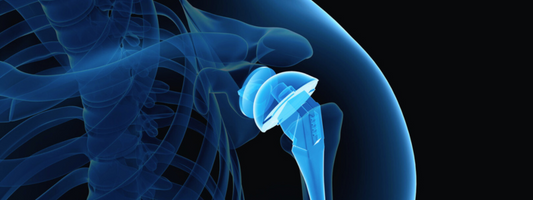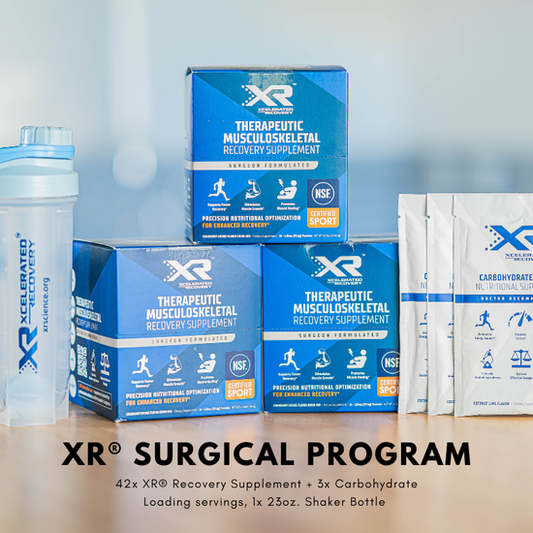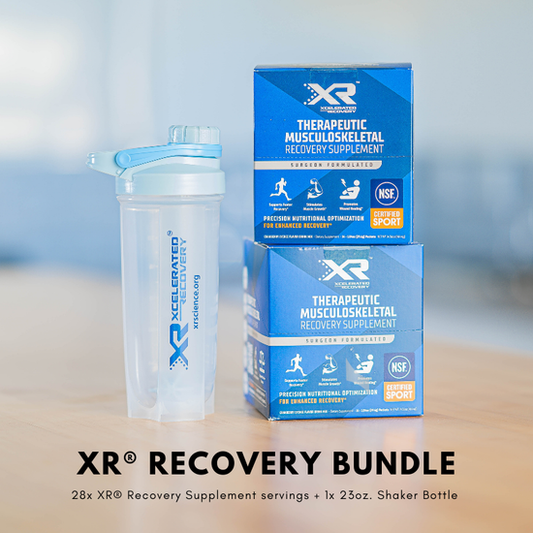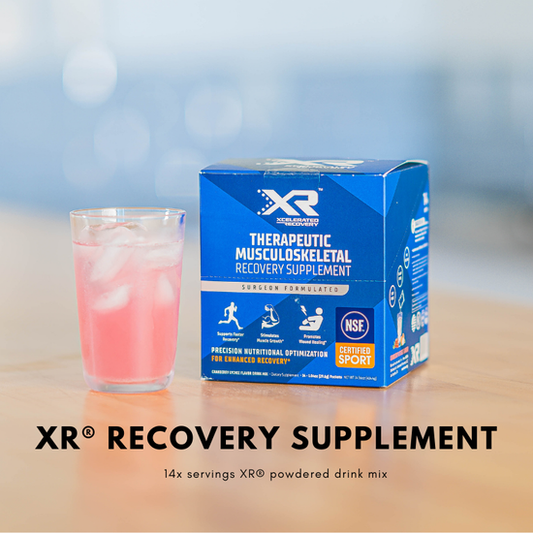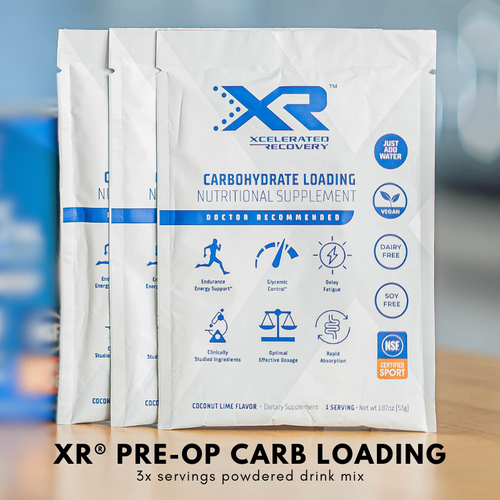
Why Is Protein So Important In Your Diet?
Share
Did You Know?
- Approximately 60% of our body is composed of water.
- Of the remaining 40%, 1/2 is Protein.
- That protein is made up of a combination of 20 Amino Acids.
- That means proteins i.e. Amino Acids make up our: muscles, hair, nails and skin, as well as our blood, hormones, and our immune system.
- Your body doesn’t store any excess amino acids you consume, which is why you need them in your diet each day (just like water and dehydration).

For Example: The body of a person who weighs 150 lbs has about 30 lbs of amino acids in their body make up.
How Amino Acids Affect Your Recovery:
Muscle wasting is the first sign of a lack of essential amino acids. Other physical symptoms can include decreased immune response, weakness, fatigue and changes to the texture of your skin and hair.
During the hypermetabolic recovery period the key building blocks for muscle/tissue healing and repair come from amino acids. Amino acids come from protein, but not all proteins are created equal.
One can think of protein as a capsule “vitamin pill”. What is important in a vitamin pill is not the capsule itself, but what vitamins that are actually in the pill. Similarly, different proteins contain different amino acids. The quality of a protein (“vitamin pill”) is scored by the amino acids in that protein and its digestibility.
2 Key Factors of a ‘Protein Quality’ Score:
-
Composition of the 9 Essential Amino Acids.
-
Level of Bioavailability; specifically digestion and absorption.
Digestion and absorption is usually 95% or higher for all Animal Proteins. (1)
For plant proteins it is less, only 60-70% bioavailable because humans can’t fully digest the fiber attached to those Plant Proteins. (2)

For Example: Wheat bran (wheat protein) is only 40% bioavailable. When reading the supplement facts on a box of wheat bran cereal and it states 4 grams per serving, there’s only less than 2 grams you can actually absorb.

The body's requirements for amino acids are significantly increased during times of stress, such as injury or surgery, while the body is in the process of muscle and tissue healing.
The optimal diet during this healing and recovery period should include adequate proteins to support the body's increased demands.
Approximately 500 amino acids have been identified in nature, but only 20 amino acids make up the proteins found in the human body. Of these twenty, 11 can be produced by our body. We must obtain the remaining 9 essential amino acids from the food we eat.
These 20 Amino Acids are classified into 3 different groups: Essential, Non-Essential, Conditionally Essential
9 Essential (obtained from food):
- Branched-chain amino acids (BCAAs): Valine, Leucine and Isoleucine
- Lysine
- Threonine
- Phenylalanine
- Methionine
- Histidine
- Tryptophan
4 Non-Essential (produced by the body):
- Alanine
- Cysteine
- Glutamic Acid
7 Conditionally Essential (produced by the body, become essential during times of stress):
- Asparagine
- Arginine
- Glutamine
- Glycine
- Proline
- Serine
- Tyrosine
Each amino acid has a specific function, for example:
High performance athletes, along with elderly patients, face the demands of minimizing muscle loss post injury or surgery in order to return to previous activity levels. The ultimate goal for orthopedic patients is return to functional recovery, which is predicated on regaining muscle volume and strength.
Advances in nutritional sciences have relieved which specific amino acids, at what doses and relative ratios are necessary to stimulate MPS in order to prevent LBM (lean body mass).
NASA researchers, faced with the challenge of limited food for travel, have similarly identified key amino acids that support astronauts in zero-gravity environments to mitigate muscle loss (3). Clinical data has demonstrated targeted nutritional supplementation to be effective in Orthopaedics to preserve muscle mass and improve strength post surgery.
Are you getting enough protein in your recovery diet?
CLICK Here to learn more about the ‘Muscle-Centric Diet for Recovery”


